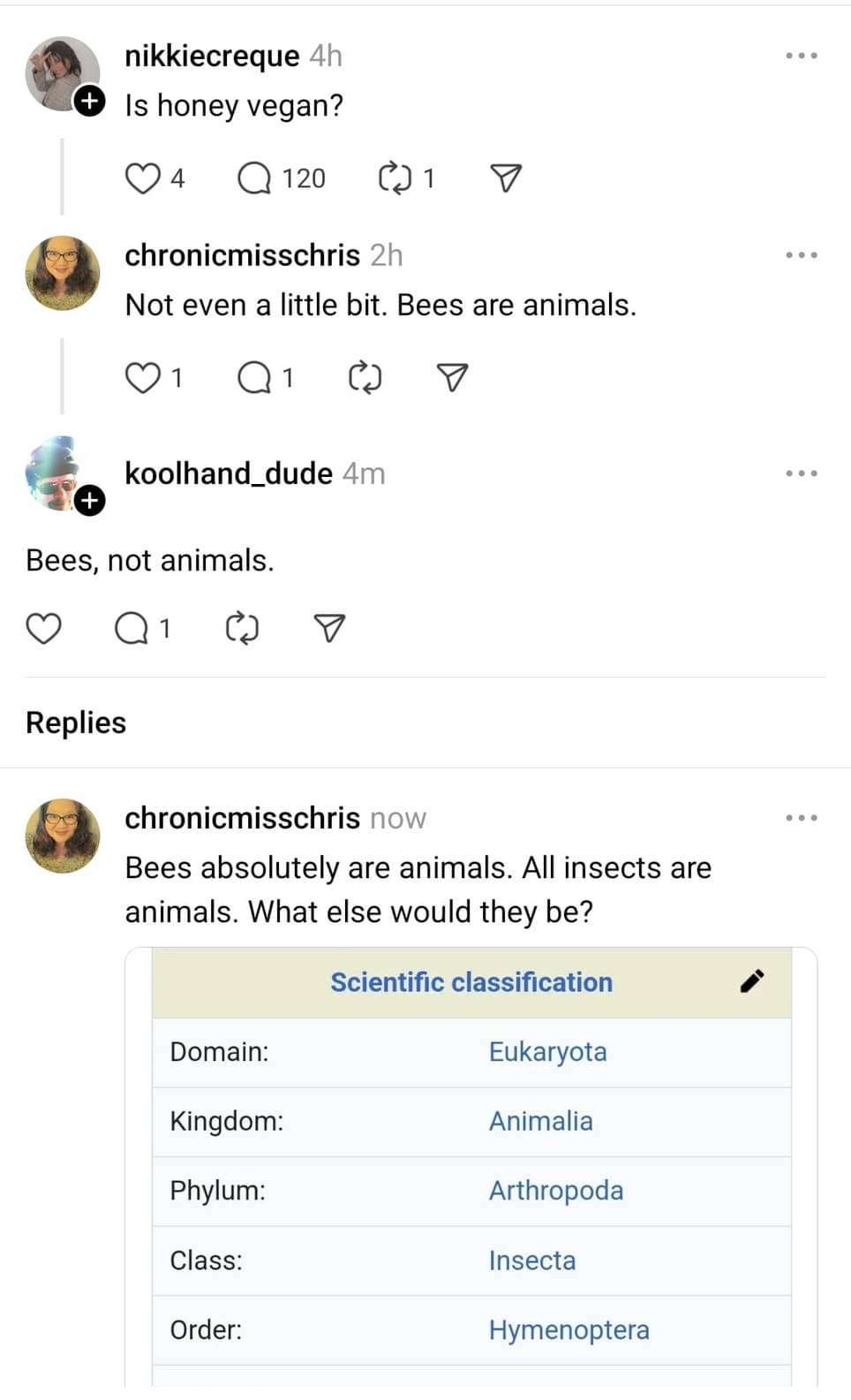this post was submitted on 19 Oct 2024
695 points (97.8% liked)
Science Memes
11148 readers
4108 users here now
Welcome to c/science_memes @ Mander.xyz!
A place for majestic STEMLORD peacocking, as well as memes about the realities of working in a lab.

Rules
- Don't throw mud. Behave like an intellectual and remember the human.
- Keep it rooted (on topic).
- No spam.
- Infographics welcome, get schooled.
This is a science community. We use the Dawkins definition of meme.
Research Committee
Other Mander Communities
Science and Research
Biology and Life Sciences
- !abiogenesis@mander.xyz
- !animal-behavior@mander.xyz
- !anthropology@mander.xyz
- !arachnology@mander.xyz
- !balconygardening@slrpnk.net
- !biodiversity@mander.xyz
- !biology@mander.xyz
- !biophysics@mander.xyz
- !botany@mander.xyz
- !ecology@mander.xyz
- !entomology@mander.xyz
- !fermentation@mander.xyz
- !herpetology@mander.xyz
- !houseplants@mander.xyz
- !medicine@mander.xyz
- !microscopy@mander.xyz
- !mycology@mander.xyz
- !nudibranchs@mander.xyz
- !nutrition@mander.xyz
- !palaeoecology@mander.xyz
- !palaeontology@mander.xyz
- !photosynthesis@mander.xyz
- !plantid@mander.xyz
- !plants@mander.xyz
- !reptiles and amphibians@mander.xyz
Physical Sciences
- !astronomy@mander.xyz
- !chemistry@mander.xyz
- !earthscience@mander.xyz
- !geography@mander.xyz
- !geospatial@mander.xyz
- !nuclear@mander.xyz
- !physics@mander.xyz
- !quantum-computing@mander.xyz
- !spectroscopy@mander.xyz
Humanities and Social Sciences
Practical and Applied Sciences
- !exercise-and sports-science@mander.xyz
- !gardening@mander.xyz
- !self sufficiency@mander.xyz
- !soilscience@slrpnk.net
- !terrariums@mander.xyz
- !timelapse@mander.xyz
Memes
Miscellaneous
founded 2 years ago
MODERATORS
you are viewing a single comment's thread
view the rest of the comments
view the rest of the comments

About honey: we do need bees. But taking away their honey which they work really hard for to sustain their colony during the winter and replacing it with sugar water is really bad for them and makes their colony weak. They can get viruses, bacteria and fungi much faster, which they can spread to other colonies or when splitting up when their queen dies.
Next to that, bees we use for honey are a very aggressive territorial species. They claim their territory and all the other bee and whasp species are killed and pushed out. There are many bee and whasp species who do not live in colonies but are very important for the biodiversity. Replacing them with our bees, which will die and get sick faster because we take away their nuteician rich honey, is a bad idea.
We do need our bees, but in reduces quantities to keep the balance. But we shouldn't take their food.
I mean bees are producing way more than they are using. We just shouldn't take it all.
It's a buffer for when the climate is different then normal so they will need more food...
That's not true, bees really do produce more than one colony needs. The thing is that when they have no more room to store honey some bees will take a large portion of it and leave to start a new colony which is bad for you as a beekeeper and other insect species. The way I see it you definitely should take the honey. Just leave some for the winter.
Bees weren't made by humans. They can survive on their own. They work until they die out of exhaustion due to the hard work, they work because of need, not of joy. Whenever they split up when there is enough honey, they spread around. That's how bees work. By limiting them to one colony by partially starving them, we endanger the species. It's already going bad for bees, due to urbanization, perticides, climate change but also colony starvation for honey production.
No one is talking about starving the bees. Someone already pointed out that bees are territorial and not great for the local insect population. You can let bees spread but there are better ways to do it. Bees do work because they think they need to, the thing is you can help them and have leftover honey that they don't need to use. You don't even need to limit the to one colony.
But to be fair our bees are nowhere near any urban areas nor pesticides so it might be different elsewhere.
So far, trying to control nature isn't going that well. The more we do, the more we fuck it up. Maybe we should give nature some time to recover from our destruction without intervention.
Generally you're not wrong but when it comes to European honey bees (which are the most common for honey production) they are presumed extinct in the wild. They need to be treated multiple times throughout the year (and it's increasing due to climate change). Also these bees have been imported to Americas where they are not native so controlling them is very important there.